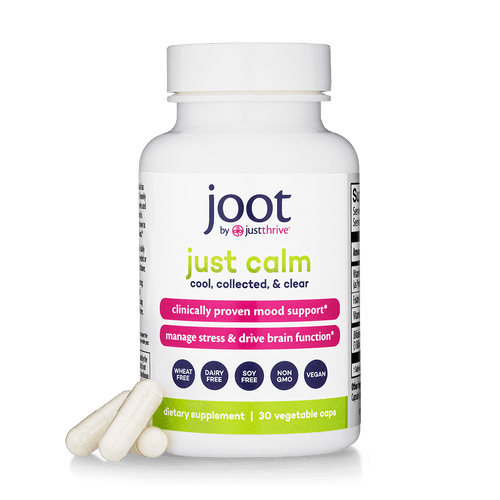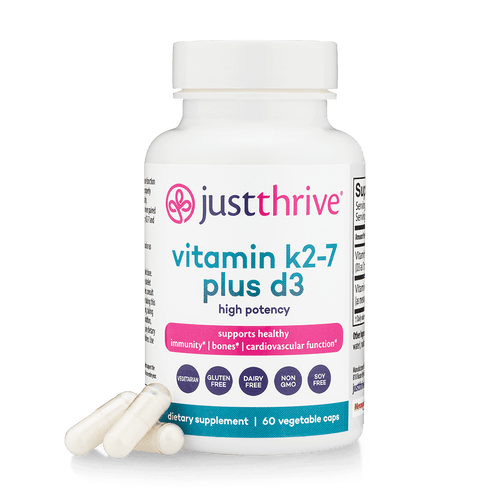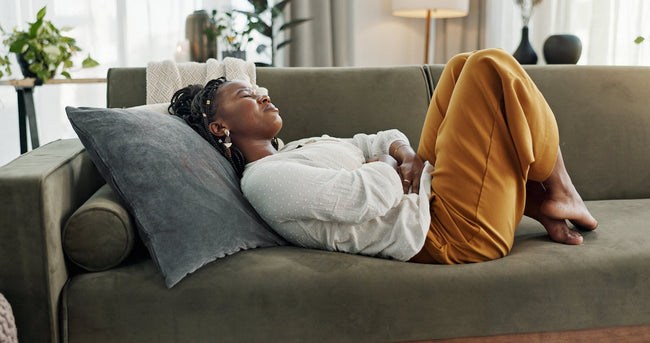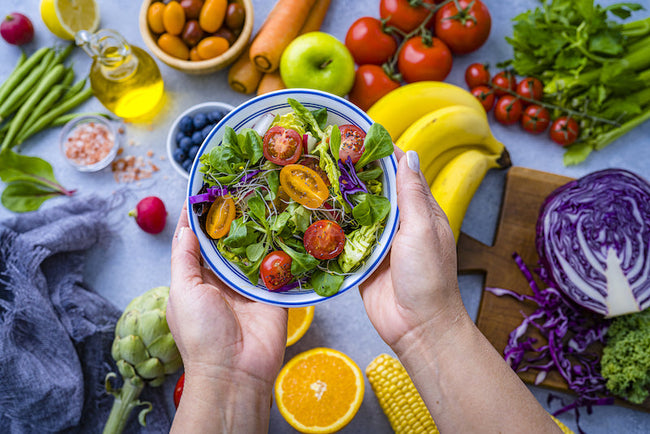Plus the one impacted area that makes all the difference
Do you wake up in the middle of the night… or toss and turn before you finally crash… or struggle to force yourself out of bed in the morning. Whichever bad sleep story sounds like yours, they all have a common cause. Stress.
The biggest threat to your sleep isn’t barking dogs or a big, rich dinner. It’s not your neighbor’s music or your partner’s snoring. It’s not even the cup of coffee you had after lunch.
The worst sleep thief is stress, but not in the ways you may think. It attacks sleep in many different ways—some you’d never expect—so you’re left feeling tired, frustrated, and irritated.
Even if you go to bed calmed down, the stress you’ve felt during the day… even during the week… can steal your sleep and leave you deprived.
But there is a way to turn down the volume on stress so you can sleep longer and better every night.
Sneaky Ways Stress Sabotages Your Sleep
Stress can keep worrying thoughts spiraling just when you want to settle down and get some rest. But stress also does a lot more to undermine conscious relaxation and falling sleep, making it nearly impossible for you to get a solid seven hours.
The effects of stress can also linger, having a delayed impact. Stressful events today can leave you struggling to sleep days or even weeks later.[1]
Research shows that stress attacks sleep in several ways:[2,3,4,5]
- Decreasing restorative slow wave sleep even when total sleep time stays the same
- Increasing the number of times you wake up during the night, fragmenting your sleep
- Disrupting your body’s internal clock and your natural sleep-wake cycles
- Spurring more vivid dreams and nightmares
- Reducing total REM sleep and changing REM sleep cycles
- Causing muscle tension, a part of the fight-or-flight response that gets your body ready to fight or flee, that keeps you from relaxing
- Causing your heart to pound faster and your breath to quicken, making it harder to rest
- Disrupting the gut microbiome, a major (but little-known) factor in restorative sleep
All of these make it harder for you to fall asleep, stay asleep, and experience restful sleep... But the last bullet concerning your gut health could be most destructive.
Why? Because when your gut microbiome is disrupted, you’re basically blocking your body’s main path to quality sleep.

The Stress-Gut-Sleep Connection
Your gut microbiome—the trillions of bacteria in your gut—plays a huge role in whether or not you’ll sleep tonight and how well. There’s a direct line of communication called the gut-brain axis that flows in both directions between your gut and your brain. In fact, scientists consider your gut to be your “second brain” because it’s home to your enteric nervous system (ENS), which contains hundreds of millions of nerve cells.[6] Your ENS sends signals to your central nervous system (CNS) along the vagus nerve, letting your gut talk to your brain. This is the gut-brain axis in action. Your gut bacteria use that connection to affect your sleep behavior.[7]
In a healthy gut, beneficial probiotic bacteria run the show and influence your ability to sleep in several important ways. They send positive sleep messages over the gut-brain axis. They produce short chain fatty acids such as butyrate and propionate that help you fall asleep faster and sleep longer.[8] Beneficial bacteria promote the production of crucial sleep chemicals including melatonin, serotonin, and GABA.[9] And, they help regulate the body’s sleep-wake cycles.[10]
But stress interferes with all of that in many damaging ways. Stress and stress hormones like cortisol affect the gut by:[11,12]
- Changing the amount of time it takes food to move through the gut (called gut transit time)
- Increasing leaky gut (intestinal permeability)
- Affecting nutrient availability in the gut
- Increasing inflammation in the gut
- Causing dysbiosis, a condition where harmful pathogenic bacteria outnumber beneficial bacteria and take control of the microbiome
With stress-induced dysbiosis, you lose all of the sleep benefits that probiotic bacteria deliver. Plus, the pathogens that now dominate your gut microbiome turn up the volume on stress and amp up insomnia.
First, those bad bacteria lower production of crucial sleep chemicals like serotonin and melatonin, messing with your natural sleep-wake cycles.[13] Stress-induced dysbiosis also impairs communication along the gut-brain axis, which garbles the messages to your brain.[14] Dysbiosis can also send inflammatory signals along the gut-brain axis, interrupting sleep signals.[15]
At the same time, dysbiosis makes it harder for your body to manage stress. Pathogens produce toxins called lipopolysaccharides (LPS toxins) that attack the gut barrier, leading to leaky gut. When LPS toxins get into your bloodstream, your immune system naturally responds. And since the pathogens dominate, the LPS toxins keep coming and your immune system is forced to stay on alert. That makes your body even more vulnerable to stressors… and makes it harder to ever turn off the stress reaction.[16]
Dysbiosis also intensifies the release of stress hormones like cortisol,[11] creating a stress cycle that’s difficult to break out of… leading to even worse sleep.
You can see how dysbiosis keeps you from sleeping and keeps you feeling more stressed. So getting your gut microbiome in healthy balance is the first step toward turning things around.

Natural Support to De-stress and Build a Sleep-Friendly Gut
There’s a lot you can do to help your body manage stress more effectively, address dysbiosis, and balance your gut microbiome to give your body a shot at better sleep. These critical steps focus on minimizing your biggest sleep thief—stress—and directly dealing with the sleep-stealing dysbiosis that stress causes.
Certain diet and lifestyle changes can help downplay the effects of everyday stress and encourage beneficial gut bacteria to grow and flourish. Here are the best ways to de-stress your gut for improved sleep.
- Eat plenty of probiotic-rich fermented foods. These foods contain live probiotic bacteria that can naturally support gut health. The best choices include sauerkraut, kimchi, kefir, yogurt, and kombucha.[17]
- Add more prebiotic fiber to your diet. Probiotic bacteria prefer to munch on prebiotic fiber, and supplying more of it helps beneficial bacteria flourish. Foods high in prebiotic fiber include asparagus, berries, garlic, onions, and apples.[18]
- Prioritize polyphenols. These powerful plant chemicals support gut health, help you fall asleep faster, and help increase total sleep time.[19] Foods with plenty of polyphenol content include dark chocolate, blueberries, coffee, green tea, and black beans.
- Exercise every day. All physical activity can benefit both gut health and sleep. Research shows that exercising at moderate intensity for just 30 minutes, three days a week affects positive change in gut bacteria.[20]
- Practice stress reduction techniques. Stress damages your gut microbiome and your sleep, so helping your body manage stress better can improve both. Mind-body techniques such as meditation, qigong, yoga, and deep breathing can help balance the gut and improve sleep quality.[21]
- Focus on good sleep hygiene. That includes things like sticking to a set sleep schedule… creating a regular bedtime routine… keeping your bedroom cool, dark, and quiet… and turning off screens at least a half hour before you’re ready for bed.
Taking these steps will be foundational to better stress management and gut balance. But with all of the stressors being thrown at you, they may not be enough on their own.
That’s when it’s time to call on one special probiotic bacteria that’s known for improving stress responses and promoting quality sleep.

Calm Your Mind & Experience Quality Sleep with B. longum 1714™
A healthy gut will help you sleep. But one unique probiotic takes stress management and quality sleep to a whole new level.
Bifidobacterium longum 1714™ is a special probiotic strain that’s been shown to help turn down the volume on stress so you can enjoy plenty of quality sleep. B. longum 1714™ helps your body quiet stress signals, so you have a chance to fully relax.[22] It’s known to help your body mount a healthy stress response, so your body won’t be constantly stuck in emergency mode.
A growing stack of research shows that this stress-fighting, sleep-promoting probiotic superstar helps you get the rest you need by:
- helping the body manage stress responses more effectively[22]
- decreasing nervous brain activity and calming negative emotions in people dealing with social stress[23]
- promoting calmness by increasing the brain’s theta wave activity[23]
- promoting clarity and focus even during stressful times[24]
- supporting healthy sleep quality and duration during stressful times[25]
All of that stress management support contributes to better sleep. And that’s not all! A 2024 clinical trial that included 89 adults struggling with sleep saw stunning results with B. longum 1714™.[26] The researchers split the subjects into two groups; one group got B. longum 1714™ and the other got a placebo. By the end of the 8-week study, the people in the B. longum 1714™ group had:
- Significantly improved sleep quality
- Reduced daytime dysfunction due to tiredness
- Improved social functioning
- Stronger energy and vitality
Bottom line: B. longum 1714™ helps your body manage stress effectively and promotes better, longer sleep so you can feel calm, rested, and ready to face the day.
Slip Into a Good Night’s Rest with Just Calm
If you dream about taming your stress so you can finally get a good night’s sleep, Just Calm can help make that dream come true.
Powered by B. longum 1714™, Just Calm supports effective stress management and promotes healthy sleep so you can greet every morning like a welcome friend.
Just Calm also contains a sleep-supportive combination of vitamins B6, B9, and B12. Your body uses these three B’s to produce GABA, the neurotransmitter that keeps you feeling calm and helps you fall asleep.
>> Try Just Calm today to turn down the volume on stress and embrace quality sleep.
But if you’re not feeling quite sure that Just Calm will be right for you… we can help. We’re confident that when you use it as directed, you’ll enjoy quality sleep.
And, if you’re not 100% happy, we’ve got your back.
If you’re not completely satisfied with your Just Thrive purchase for ANY reason, you can take advantage of our “Bottom of the Bottle” 100% Money Back Guarantee: Love your Just Thrive purchase, or request a full product refund at any time… Whether it’s 3 days, 3 weeks, or 3 months later… Even if the bottle is empty!
>> Try Just Calm, 100% RISK FREE, and save 30% on your first month’s subscription with code SUB30.
Sources
- Kalmbach DA, Anderson JR, Drake CL. The impact of stress on sleep: Pathogenic sleep reactivity as a vulnerability to insomnia and circadian disorders. J Sleep Res. 2018 Dec;27(6):e12710. doi: 10.1111/jsr.12710. Epub 2018 May 24. PMID: 29797753; PMCID: PMC7045300.
- Kim EJ, Dimsdale JE. The effect of psychosocial stress on sleep: a review of polysomnographic evidence. Behav Sleep Med. 2007;5(4):256-78. doi: 10.1080/15402000701557383. PMID: 17937582; PMCID: PMC4266573.
- Koch CE, Leinweber B, Drengberg BC, Blaum C, Oster H. Interaction between circadian rhythms and stress. Neurobiol Stress. 2016 Sep 8;6:57-67. doi: 10.1016/j.ynstr.2016.09.001. PMID: 28229109; PMCID: PMC5314421.
- Pesonen AK, Let al. Pandemic Dreams: Network Analysis of Dream Content During the COVID-19 Lockdown. Front Psychol. 2020 Oct 1;11:573961. doi: 10.3389/fpsyg.2020.573961. PMID: 33117240; PMCID: PMC7560506.
- Zieliński G, Ginszt M, Zawadka M, Rutkowska K, Podstawka Z, Szkutnik J, Majcher P, Gawda P. The Relationship between Stress and Masticatory Muscle Activity in Female Students. J Clin Med. 2021 Aug 4;10(16):3459. doi: 10.3390/jcm10163459. PMID: 34441752; PMCID: PMC8397028.
- Ochoa-Repáraz J, Kasper LH. The Second Brain: Is the Gut Microbiota a Link Between Obesity and Central Nervous System Disorders? Curr Obes Rep. 2016 Mar;5(1):51-64. doi: 10.1007/s13679-016-0191-1. PMID: 26865085; PMCID: PMC4798912.
- Besedovsky L, Lange T, Born J. Sleep and immune function. Pflugers Arch. 2012 Jan;463(1):121-37. doi: 10.1007/s00424-011-1044-0. Epub 2011 Nov 10. PMID: 22071480; PMCID: PMC3256323.
- Wang Z, Wang Z, Lu T, Chen W, Yan W, Yuan K, Shi L, Liu X, Zhou X, Shi J, Vitiello MV, Han Y, Lu L. The microbiota-gut-brain axis in sleep disorders. Sleep Med Rev. 2022 Oct;65:101691. doi: 10.1016/j.smrv.2022.101691. Epub 2022 Aug 31. PMID: 36099873.
- Magzal, F., Even, C., Haimov, I. et al. Associations between fecal short-chain fatty acids and sleep continuity in older adults with insomnia symptoms. Sci Rep 11, 4052 (2021).
- Sejbuk M, Siebieszuk A, Witkowska AM. The Role of Gut Microbiome in Sleep Quality and Health: Dietary Strategies for Microbiota Support. Nutrients. 2024;16(14):2259. Published 2024 Jul 13. doi:10.3390/nu16142259
- Rusch JA, Layden BT, Dugas LR. Signalling cognition: the gut microbiota and hypothalamic-pituitary-adrenal axis. Front Endocrinol (Lausanne). 2023 Jun 19;14:1130689. doi: 10.3389/fendo.2023.1130689. PMID: 37404311; PMCID: PMC10316519.
- Oligschlaeger Y, Yadati T, Houben T, Condello Oliván CM, Shiri-Sverdlov R. Inflammatory Bowel Disease: A Stressed "Gut/Feeling". Cells. 2019 Jun 30;8(7):659. doi: 10.3390/cells8070659. PMID: 31262067; PMCID: PMC6678997.
- Ahmadi S, Taghizadieh M, Mehdizadehfar E, Hasani A, Khalili Fard J, Feizi H, Hamishehkar H, Ansarin M, Yekani M, Memar MY (2024) Gut microbiota in neurological diseases: melatonin plays an important regulatory role. Biomed Pharmacother 174:116487.
- Morys J, Małecki A, Nowacka-Chmielewska M. Stress and the gut-brain axis: an inflammatory perspective. Front Mol Neurosci. 2024 Jul 18;17:1415567. doi: 10.3389/fnmol.2024.1415567. PMID: 39092201; PMCID: PMC11292226.
- Pala B, Pennazzi L, Nardoianni G, Fogacci F, Cicero AFG, Di Renzo L, Barbato E, Tocci G. Gut Microbiota Dysbiosis and Sleep Disorders: Culprit in Cardiovascular Diseases. J Clin Med. 2024 May 31;13(11):3254. doi: 10.3390/jcm13113254. PMID: 38892965; PMCID: PMC11173264.
- de Punder K, Pruimboom L. Stress induces endotoxemia and low-grade inflammation by increasing barrier permeability. Front Immunol. 2015 May 15;6:223. doi: 10.3389/fimmu.2015.00223. PMID: 26029209; PMCID: PMC4432792.
- Wu J, Zhang B, Zhou S, Huang Z, Xu Y, Lu X, Zheng X, Ouyang D. Associations between gut microbiota and sleep: a two-sample, bidirectional Mendelian randomization study. Front Microbiol. 2023 Aug 14;14:1236847. doi: 10.3389/fmicb.2023.1236847. PMID: 37645227; PMCID: PMC10461450.
- Leeuwendaal NK, Stanton C, O'Toole PW, Beresford TP. Fermented Foods, Health and the Gut Microbiome. Nutrients. 2022 Apr 6;14(7):1527. doi: 10.3390/nu14071527. PMID: 35406140; PMCID: PMC9003261.
- Carlson JL, Erickson JM, Lloyd BB, Slavin JL. Health Effects and Sources of Prebiotic Dietary Fiber. Curr Dev Nutr. 2018 Jan 29;2(3):nzy005. doi: 10.1093/cdn/nzy005. PMID: 30019028; PMCID: PMC6041804.
- Wang W, Liu T, Ding Y, Zhang Y. Effects of polyphenol-rich interventions on sleep disorders: A systematic review and meta-analysis. Curr Res Food Sci. 2023 Feb 15;6:100462. doi: 10.1016/j.crfs.2023.100462. PMID: 36866197; PMCID: PMC9972497.
- Boytar AN, Skinner TL, Wallen RE, Jenkins DG, Dekker Nitert M. The Effect of Exercise Prescription on the Human Gut Microbiota and Comparison between Clinical and Apparently Healthy Populations: A Systematic Review. Nutrients. 2023 Mar 22;15(6):1534. doi: 10.3390/nu15061534. PMID: 36986264; PMCID: PMC10054511.
- Allen, A., Hutch, W., Borre, Y. et al. Bifidobacterium longum 1714 as a translational psychobiotic: modulation of stress, electrophysiology and neurocognition in healthy volunteers. Transl Psychiatry 6, e939 (2016).
- Wang H, Braun C, Murphy EF, Enck P. Bifidobacterium longum 1714™ Strain Modulates Brain Activity of Healthy Volunteers During Social Stress. Am J Gastroenterol. 2019 Jul;114(7):1152-1162.
- 26BB Savignac HM, Tramullas M, Kiely B, Dinan TG, Cryan JF. Bifidobacteria modulate cognitive processes in an anxious mouse strain. Behav Brain Res. 2015;287:59-72. doi: 10.1016/j.bbr.2015.02.044. Epub 2015 Mar 17. PMID: 25794930.
- Moloney GM, et al. Improvements in sleep indices during exam stress due to consumption of a Bifidobacterium longum. Brain Behav Immun Health. 2020 Nov 13;10:100174. doi: 10.1016/j.bbih.2020.100174. PMID: 34589719; PMCID: PMC8474585.
- Patterson E, Tan HTT, Groeger D, Andrews M, Buckley M, Murphy EF, Groeger JA. Bifidobacterium longum 1714 improves sleep quality and aspects of well-being in healthy adults: a randomized, double-blind, placebo-controlled clinical trial. Sci Rep. 2024 Feb 14;14(1):3725.














